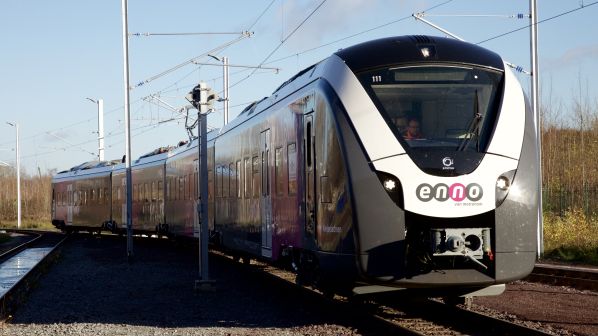Alstom says the experiments, which will commence next year, will be a world-first for a mainline train and is partnering with the German Aerospace Centre (DLR), Technical University of Berlin (TU Berlin) and the Regional Association of Greater Braunschweig to deliver the project.
The research project will commence in early 2021. Following the evaluation of selected tracks and the equipment necessary for automated operation, line testing will start in autumn 2022 and take place for nine months. The first live trials with passengers will take place in 2023 following an agreement with the operator with the project set to conclude that year.
The two trains, which are owned by Regionalbahnfahrzeuge Grossraum Braunschweig (RFGB), will operate with ATO over ETCS. The GoA3 trials will consist of fully autonomous operation but with an attendant in position to intervene in case of emergency and will take place in regular passenger operation. GoA4, in which no attendant is used and remote control is possible, will be tested for shunting.
Alstom says the findings from the project will contribute significantly to the further development of the legal and regulatory framework for mainline ATO. The trials will commence following an evaluation of suitable lines and the equipment necessary to deliver automation.
Alstom will draw on past experience with automated metros and other ATO projects - the company is leading the European ATO project in Shift2Rail and is involved in French National Railways' (SNCF) automated freight train project. The onboard technology developed for the Lower Saxony trials will be an evolution of these projects.
Alstom was awarded an “Innovation Prize for Regulatory Sandboxes” by the German Federal Ministry for Economics for the initiative. The projects included in the “sandboxes” serve as test environments for innovation and regulation and seek to gather experience with digital innovations in real situations.

